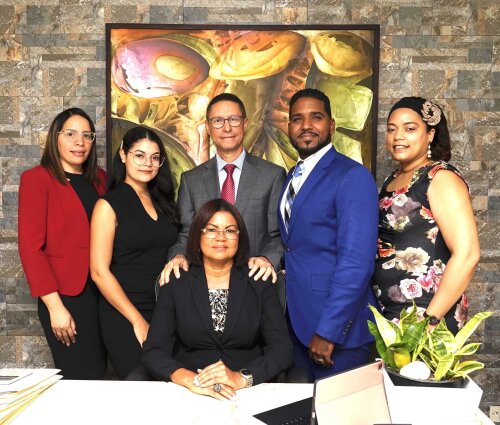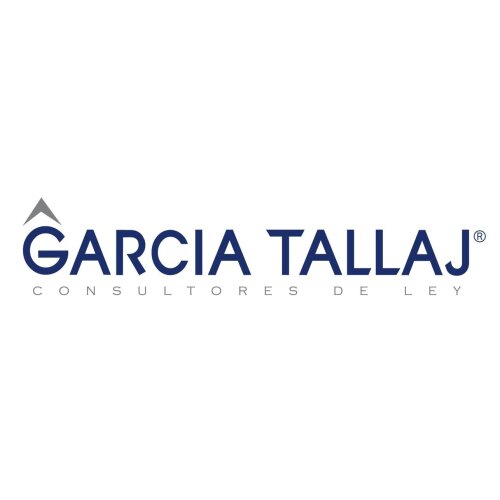Best Adoption Lawyers in Sosua, Cabarete
Share your needs with us, get contacted by law firms.
Free. Takes 2 min.
Free Guide to Hiring a Family Lawyer
List of the best lawyers in Sosua, Cabarete, Dominican Republic
About Adoption Law in Sosua, Cabarete, Dominican Republic
Adoption laws in Sosua and Cabarete, located in the Puerto Plata province of the Dominican Republic, are governed by national regulations alongside some localized procedures. Adoption is a legal process through which a person or couple formally becomes the parent of a child who is not biologically theirs. This process provides the child with rights and privileges in law as if they were the natural child of the adoptive parent or parents. Both Dominican nationals and foreigners may pursue adoption, but legal requirements and procedures may differ based on the adopter’s nationality and residency status. Understanding the legal framework is essential to ensuring a smooth and ethical adoption process.
Why You May Need a Lawyer
Seeking legal advice is crucial for anyone considering adoption in Sosua or Cabarete due to the complex legalities and regulations involved. Common situations that may require legal assistance include:
- Understanding eligibility criteria for adoption as a resident or foreigner
- Navigating the sometimes lengthy and multi-phase adoption process
- Preparing and reviewing legal documents required by Dominican authorities
- Ensuring the adoption complies with both local and international laws (especially for intercountry adoption)
- Resolving disputes or complications that arise during the process
- Representing the adoptive parents’ interests in court hearings if necessary
- Protecting the rights of all parties involved, including the child
Legal guidance can help prevent delays or rejections, ensure all documentation is in order, and provide peace of mind throughout the adoption process.
Local Laws Overview
Adoption in Sosua and Cabarete follows the guidelines established by the Dominican Republic’s Child and Adolescent Code (Law 136-03). Key aspects include:
- Eligibility: Prospective adoptive parents must be at least 30 years old and at least 15 years older than the child. Both singles and couples may adopt, though preference may sometimes be given to married couples.
- Consent: Biological parents or legal guardians must provide written consent for adoption, unless they have lost their parental rights or the child has been legally abandoned.
- Types of Adoption: Dominican law recognizes both domestic and international adoptions. Foreigners may adopt, but must generally meet additional requirements such as residency or approval from their home country’s authorities.
- Legal Procedure: The process involves social services assessments, psychological evaluations, home studies, and judicial approvals. Finalization requires a court order, and the child receives a new birth certificate.
- International Standards: The Dominican Republic is a signatory to the Hague Convention on Intercountry Adoption, which adds measures to protect the best interests of the child in international cases.
- Agency Involvement: Adoptions are closely monitored by the Consejo Nacional para la Niñez y la Adolescencia (CONANI), the governmental body responsible for child welfare and adoption matters.
The adoption process can take from several months to a few years, depending on the specifics of the case and the parties involved.
Frequently Asked Questions
What are the basic requirements for adopting a child in Sosua or Cabarete?
Adopters must be at least 30 years old, at least 15 years older than the child, have no criminal record, be financially stable, and demonstrate good moral character.
Can single persons adopt in the Dominican Republic?
Yes, single individuals can adopt. The law does not restrict adoption to married couples, although marital status may be considered in the evaluation process.
Is international adoption possible in Sosua or Cabarete?
Yes, but foreigners usually need to meet additional requirements such as a period of residency, approval from their home country, and adherence to Hague Convention protocols.
Do biological parents need to consent to the adoption?
Yes, unless the biological parents have lost their parental rights or the child is legally declared abandoned, written consent is required from the biological parents or legal guardians.
How long does the adoption process usually take?
The process can range from several months to a few years, depending on the complexity of the case, the requirements of the authorities, and whether the adoption is domestic or international.
Are there restrictions on who can be adopted?
Generally, only minors under 18 and declared adoptable by CONANI may be adopted. Sibling groups and children with special needs are also adoptable under specific provisions.
Is a lawyer required for adoption?
While not strictly mandatory, having a lawyer is highly recommended to navigate legal requirements, documentation, and court proceedings.
What government body oversees adoptions in Sosua and Cabarete?
CONANI (Consejo Nacional para la Niñez y la Adolescencia) manages and supervises adoption processes throughout the Dominican Republic, including Sosua and Cabarete.
What documents are generally required for adoption?
Adopters typically need to provide birth certificates, proof of income, medical reports, police records, marital status certificates, and other documentation as outlined by CONANI.
Can same-sex couples adopt in the Dominican Republic?
The law does not expressly permit same-sex couples to adopt. Local practice and legal interpretations may vary, making it important to seek specific legal advice.
Additional Resources
If you are considering adoption in Sosua, Cabarete, or elsewhere in the Dominican Republic, the following resources may be helpful:
- CONANI (Consejo Nacional para la Niñez y la Adolescencia) - The principal government agency for adoption and child welfare
- Local family courts in Puerto Plata province, responsible for finalizing adoptions
- Embassies or consulates for international adopters, which can guide on requirements for intercountry adoption
- Local legal aid organizations that support family law matters
- Civil registry offices for birth certificates and post-adoption documentation
Next Steps
If you are thinking about adopting a child in Sosua or Cabarete, the process typically begins with gathering information and consulting with an experienced local family law attorney. Here are some suggested next steps:
- Research and familiarize yourself with the basic requirements and procedures for adoption in the Dominican Republic.
- Contact a reputable local lawyer who specializes in family or adoption law to assess your eligibility and explain the process in detail.
- Prepare the required documentation and undergo the initial assessments by CONANI or other relevant agencies.
- Attend informational meetings or workshops on adoption if available in your area.
- Follow your legal representative’s instructions regarding court hearings and official procedures.
- Maintain open and honest communication with all parties, including the adoption agency, legal authorities, and, where appropriate, the birth family.
Legal support can make a significant difference when navigating the complexities of adoption in Sosua and Cabarete. Timely advice and advocacy help ensure the best interests of the child while protecting your rights throughout the process.
Lawzana helps you find the best lawyers and law firms in Sosua, Cabarete through a curated and pre-screened list of qualified legal professionals. Our platform offers rankings and detailed profiles of attorneys and law firms, allowing you to compare based on practice areas, including Adoption, experience, and client feedback.
Each profile includes a description of the firm's areas of practice, client reviews, team members and partners, year of establishment, spoken languages, office locations, contact information, social media presence, and any published articles or resources. Most firms on our platform speak English and are experienced in both local and international legal matters.
Get a quote from top-rated law firms in Sosua, Cabarete, Dominican Republic — quickly, securely, and without unnecessary hassle.
Disclaimer:
The information provided on this page is for general informational purposes only and does not constitute legal advice. While we strive to ensure the accuracy and relevance of the content, legal information may change over time, and interpretations of the law can vary. You should always consult with a qualified legal professional for advice specific to your situation.
We disclaim all liability for actions taken or not taken based on the content of this page. If you believe any information is incorrect or outdated, please contact us, and we will review and update it where appropriate.










